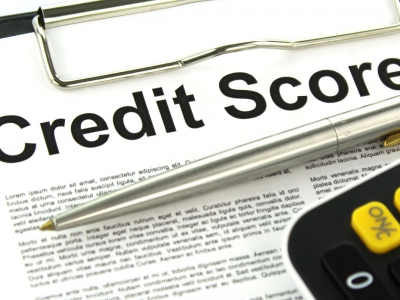
Factors That Credit Card Companies Look at When Evaluating an Application

5 Tips to Maintain A high Credit Score
Everyone seems to have at least one credit card, even if some use it only for emergencies. But many consumers carry three to ten cards to cover random purchases throughout the day. Before they know it, they have maxed out several cards, and their credit rating is at risk of plummeting to an all-time low.
If you overuse your credit cards or are have damaged your credit score, don't despair. You probably don't have to hire a financial wizard to get your credit rating back in shape. Just follow the steps below to regain a positive credit score that will protect your financial well being.
1. Stop Using Credit.
It sounds easy, but it's hard to do, right? Like any addiction, you may just need to wean yourself off overusing your credit accounts. If you are carrying three cards around with you, put away two of them. Use just one for necessary purchases. Tangibly seeing and knowing you have just one credit line to draw on for purchases will help you to avoid overspending.
2. Follow a Budget.
If you have a monthly spending budget, make one, follow it consistently. If you don't have one already, make one. There are numerous free tools and apps online that will help you establish a reasonable monthly budget to balance your income and expenses. If the template comes with a pre-determined list of items, adjust to your personal needs. Remember to include those marginal items that are easy to overlook when planning your monthly bills, such as television or online subscriptions, medical copays, salon visits, and others. Be inclusive as you think about how you spend your income and available credit. Your morning latte or the kids' lunch money cannot be overlooked.
3. Pay with Cash.
Although it's becoming less common, cash is still king among many consumers. Give yourself a cash allowance on each payday to cover the necessary expenses that you don't pay online or by check. Cash comes in handy for tips, small purchases, and kids' allowance. Sometimes you might make cash donations during the holidays to collectors at the supermarket. Otherwise, stick to your budget by writing checks or paying bills online so you have a clear written record of what you are buying or paying for. If you run out of cash before the next pay date, try to do without the intended purchase. For example, if you don't have enough change for your morning coffee shop drive-through, start making coffee at home; it's cheaper anyway. To avoid paying high tips, order food for takeout and pay the standard lower tip. There are several things you can do to conserve your cash supply and avoid running up high credit balances.
4. Pay Bills on Time.
Nothing helps your credit rating more than paying your bills on time - every time. Get in the habit of waiting for certain bills to arrive in the mail or online each month, and then promptly pay the minimum payment that is due. Missing a payment, paying late, or paying less than the minimum required will all hurt your credit report, especially if you continue to practice these bad habits. Respect your creditors by paying on time, and your credit score will rise to a healthy level before long.
5. Avoid Too Much Credit.
When all those credit card offers come in the mail or to your email account, it is tempting to apply for them all. Some offer a low introductory rate, while others dazzle with a skyrocketing credit limit. After you apply, you soon experience the hard reality when you find out that you are not eligible for the low interest rate, but they will give you an account anyway, or you can have a lower credit limit account until they see if you make payments on time. While you may want to accept new credit cards on any terms, they can be seriously harmful to your financial health. With each new credit card, you run the risk over-spending to buy things you cannot afford. Your income-to-debt ratio will shift, which also can negatively impact your credit report. So don't apply for more credit cards. Stick with one low-interest account for emergencies only.
No matter how low your credit ranking, you can repair it with self-discipline and careful financial management. Pay your bills on time. Don't overextend your credit use. Avoid applying for additional credit. By following these tips, your unhealthy credit rating should soon be on its way to recovery.